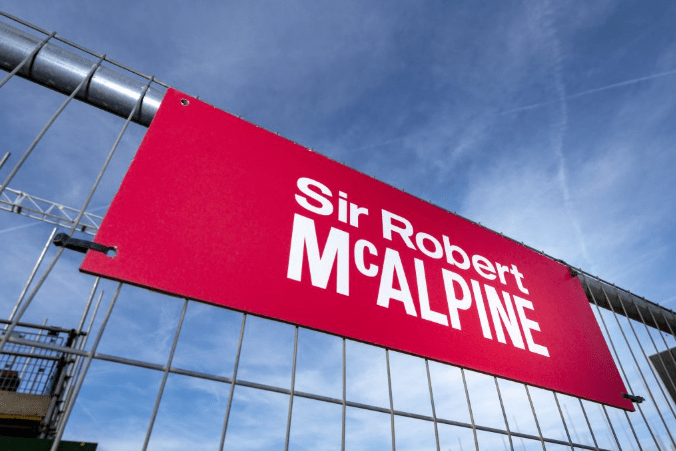Sir Robert McAlpine has posted a resounding return to profitability, signalling a strong recovery for the historic civil engineering and construction giant.
The company reported a pre-tax profit of £10.4 million for the year ending October 2024 — a striking turnaround from the eye-watering £104.6 million loss recorded just a year earlier.
The figures released show a business firmly back on track. Turnover rose by 7%, reaching £940 million. Meanwhile, the cash balance improved markedly to £143.5 million, up from £100.8 million in 2023. Importantly, Sir Robert McAlpine remains entirely debt-free.
The firm’s order book stands at a robust £1.3 billion, with an additional £1.2 billion in preferred bidder positions. To date this year, £813 million has either been secured or delivered, with another £129 million close to finalisation.
Major Project Wins Drive Growth
Sir Robert McAlpine’s recent project wins reflect its focus on future-forward sectors:
- Agratas battery cell facility in Somerset, a state-of-the-art manufacturing site.
- Tata Steel’s electric arc furnace project at Port Talbot, a cornerstone for greener steel production.
- 90-bed mental health facility at Tolworth Hospital, supporting NHS infrastructure.
- NESST innovation hub in Newcastle, bolstering technological development in the region.
Each project reinforces the company’s strategic emphasis on sustainable growth and operational excellence.
CEO Neil Martin praised the company’s transformation efforts, stating, “The benefits of the strategic changes are reflected in the stable performance of 2023/24.”
He added that the company remains committed to delivering client value, maintaining operational excellence, and targeting the right opportunities — all powered by a trusted supply chain.
Founded in 1869 by Robert McAlpine in Lanarkshire, the firm has long-standing ties to Britain’s Irish immigrant community. It rose to become one of the UK’s most respected names in civil engineering.
The company’s historic reputation among workers, particularly Irish navvies, has been immortalised in songs like McAlpine’s Fusiliers, penned by Dominic Behan and popularised by The Dubliners.
The lyrics famously paint a vivid, if often harsh, picture of life on Britain’s construction sites: “Oh, I’ve worked on the railways and I’ve worked on the roads, I’ve worked with the gangway and I’ve carried me load, I’ve dug the big tunnels and I’ve cut the big drains, And I’ve blasted the rock and I’ve dammed up the mains.”
Despite the rough portrayal, historian Ultan Cowley, a regular contributor to The Irish Post, argues that the relationship between Irish labourers and Sir Robert McAlpine’s senior management was generally more cooperative than such songs suggest.
Sir Robert McAlpine’s latest results showcase a business not just recovering, but thriving. With a growing order book, strategic project wins, and a strong leadership team in place, the firm is well-positioned to build on its proud legacy — and shape the future of UK construction.






